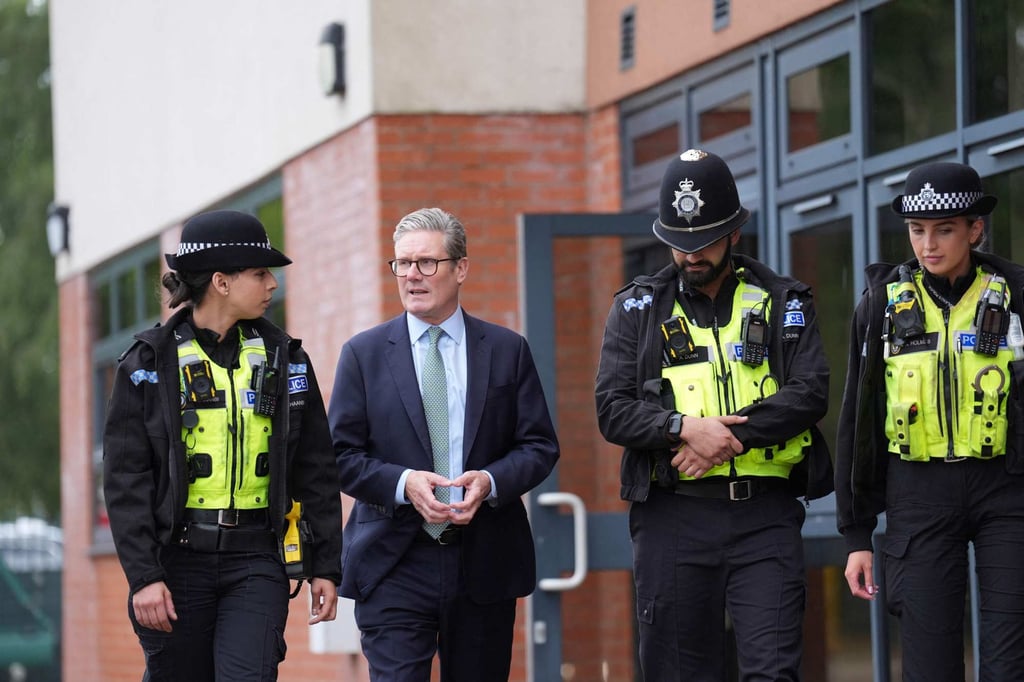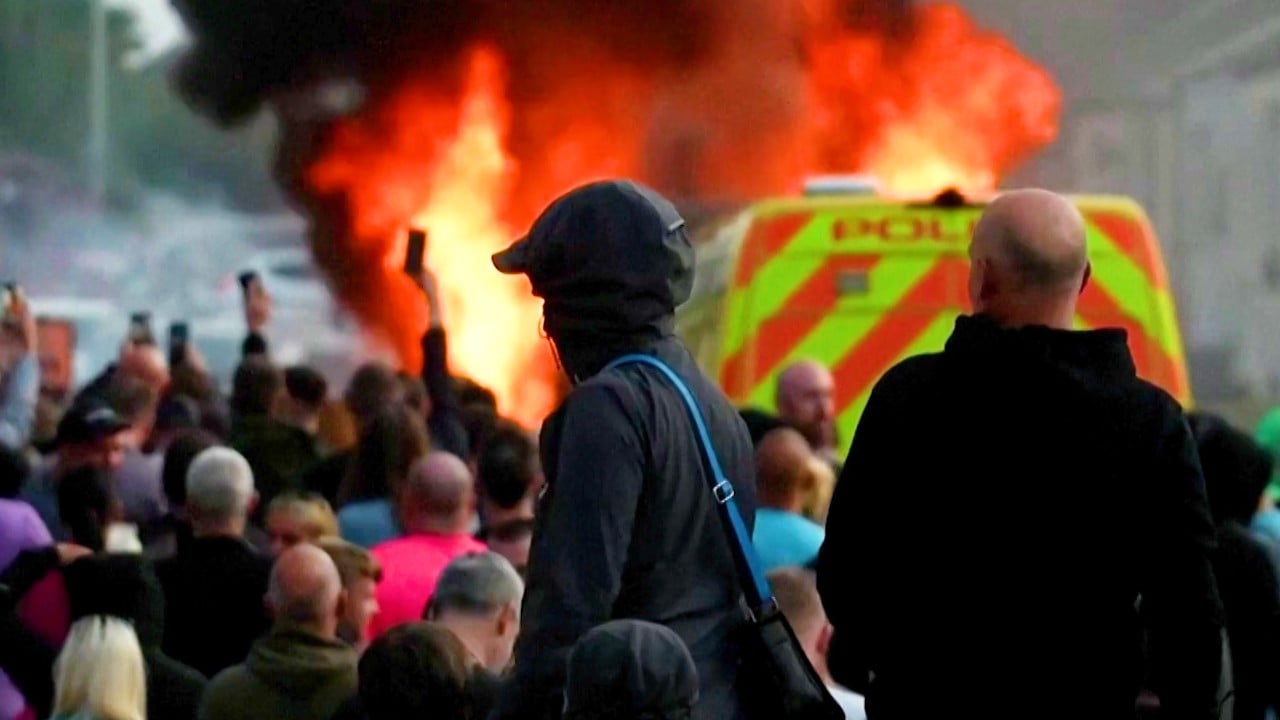British police are allowed to use tasers and have already used tear gas, but “only as a last resort,” says Hugo Gorringe, head of sociology at the University of Edinburgh.

The police must also strive for a relationship with the public “that does justice to the historical tradition that the police are the public and the public are the police.”
In the UK, therefore, responsibility for suppressing violence lies with ordinary officers of local police forces, rather than with the specialised riot police responsible for crowd control in France.
“The police officers are essentially citizens in uniform and integrated into the wider community” rather than living in military barracks, Gorringe explained.
“There is no special on-call team. There are officers who have completed on-call training. Then they are equipped, they have their hard hats and shields and they respond.”
This was seen on the streets of Southport in northwest England last Tuesday, when violence broke out for the first time following the murder of three young girls in a knife attack the previous day.
If the police are overloaded, trained officers from surrounding emergency services can be called in.
As violence spread across the country last week, Prime Minister Keir Starmer announced the creation of a “standing army” of 6,000 specialist law enforcement officers.
But instead of heralding a change of course towards a tougher European model, the announcement was more of a “tough rhetoric” and signalled that “appropriately trained officials were on standby”, said Gorringe.

He argued that the fact that riots are “fortunately rare” in Britain is partly due to the model of policing practiced there, which is based on the consent of the people.
Knowing that “taking too harsh and too stern action can escalate the situation,” police have often held back and arrested people later. In recent days, there has been a wave of criminal prosecutions.
Intelligence gathering and community engagement have also been used to predict and prevent violence.
“You rely on trust and relationships in the community to know where and when to deploy troops,” Gorringe said.
However, West Midlands Police had come under criticism after allowing a group of violent men to gather, some of whom were clearly armed as they vandalised cars and a pub. The men had been persuaded by community leaders that they would not cause trouble.
These criticisms, along with shocking images of police officers fighting hand-to-hand with rioters, call into question the basic principles of consensual policing. Gorringe believes that “the model is under threat on several fronts.”
One of those calling for tougher measures is Kevin Moore, former chief of Sussex Police.
“If you look at the tactics of European police forces, you can see that they don’t play by halves. They would pull out the old water cannon,” he told the Daily Mail.
London’s Metropolitan Police has water cannons that the city’s mayor, Boris Johnson, who later became prime minister, bought after the riots in 2011.
But then Home Secretary Theresa May – Johnson’s predecessor as Prime Minister – refused to consent to their deployment.
“If medical and scientific evidence suggests that these powers could cause serious harm, if the practical implementation is not clear and if the historic principle of police consent could be compromised, I will not give my consent,” May said.
There are also “question marks about how effective water cannons are in fast and agile riots,” Gorringe said.
However, he said the use of tear gas may have been appropriate during the riots in Rotherham, northern England, when a hotel housing asylum seekers was attacked.
If the unrest continues, “there will be much more justification for the cost of things like water cannons,” he added.


